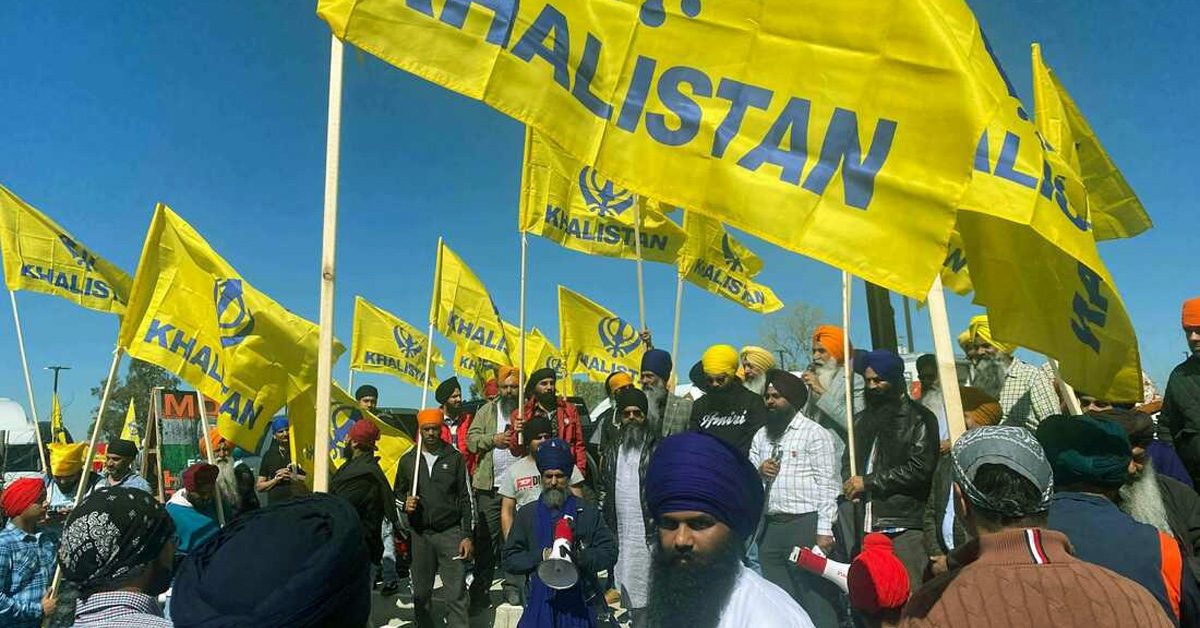In a spectacular exhibition of democratic ambitions, an estimated 40,000 Sikh Americans gathered around the state Capitol on Sunday to enter a tent and vote for independence.
The vote is part of a non-binding poll held by Sikhs worldwide who want to secede from India and establish an independent nation named Khalistan in what is now the Indian state of Punjab.
On Sunday, amid a sea of brilliant yellow Khalistan flags, volunteers kept the electorate happy by handing out delicious and savory delicacies and pouring pitchers of hot chai tea.
For Bhupinder Singh, Sunday was his second attempt to vote. His original voyage in January, six hours from his home in Oregon to San Francisco for an earlier vote, was prevented by an extraordinary turnout that organizers estimate topped 100,000. Lines extended for six hours, rendering many unable to vote.
The Punjab Referendum Commission, a team of direct democracy specialists led by Dane Waters, a former official in President George H. W. Bush’s administration, responded by adding a second day of California voting in Sacramento.
California is home to an estimated 250,000 individuals of Sikh heritage, most of whom dwell in the Central Valley.
Sun looked on as Sikhs entered the voting place.
Looking on as Sikhs approached the polling centre on Sunday, Waters said everything was “going smoothly” and that, unlike in San Francisco, everyone who wanted to vote would be allowed to do so.
“We will not be intimidated.” “Sikhs are a determined people,” Singh added, wrapping his arm around his 9-year-old nephew, Armaan Singh of Chico.
“We want Khalistan,” Armann explained.
In September, Canadian Prime Minister Justin Trudeau and Western intelligence services said that evidence revealed that the Indian government, led by Prime Minister Narendra Modi, was responsible for Nijjar’s killing.
In November, US investigators released an indictment stating that Gurpatwant Singh Pannun, a lawyer for Sikhs for Justice, was also the victim of an assassination conspiracy orchestrated by India. The purported scheme was uncovered when the plotters offered $100,000 to an undercover American agent they mistook for a hitman to assassinate Pannun.
The danger against Sikh activists has also been felt in Sacramento.
Bobby Singh, a local activist and Sacramento State student who was close to Najjar got a disturbing death threat just days after the Sikh leader was assassinated. Since then, the FBI has communicated with Singh often. Singh stated that the FBI recently asked him to minimize his public activities.
Heeding such cautions, Singh stayed away from the Capitol Sunday, observing from a few streets away. He expressed his pride as he witnessed streams of “my Sikh brothers and sisters” heading to vote.
According to Bloomberg, Indian officials alerted US authorities last month that an internal probe had indicated that renegade members of India’s intelligence agency, the Research and Analysis Wing, were responsible for the attempt to assassinate Pannun.
Stanton stated that the schemes involving Sikh leaders represent “progress in that India has admitted complicity.” The former intelligence official stated that due to the scrutiny India has received, more high-profile assassination attempts in the United States and Canada sanctioned by India are “unlikely to be attempted again.” Despite this, we deserve justice for Mr. Nijjar.”
Stanton rejects assertions that Modi was ignorant of the assassination plans. “He knew. “It’s his out.”
Karam Singh, director of advocacy for the California Sikh Youth Alliance, described Sunday’s decision as a joyous day for his family. Singh grew up in Sacramento, where he currently resides. His parents immigrated here in the 1980s to escape violence against Sikhs, which many consider to be genocide.
“The same process, an independence referendum, must finally occur in Punjab. This is a test for the Indian government: can it operate like a mature democracy by allowing a free and fair election in Punjab? “Or will they continue to criminalize democracy and dissent?”
However, experts in India feel that the Modi government would unlikely accept such a vote. Despite international anger over Nijjar’s death, the Indian government continues to portray Khalistan independence proponents as “terrorists.” Non-binding ballots, such as Sundays, convey a message and increase awareness worldwide, but they are now primarily symbolic.

